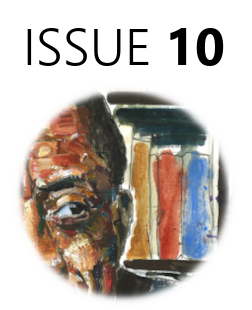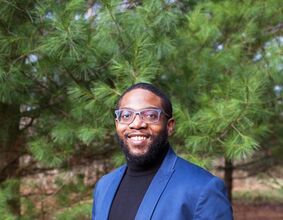|
EDITORIAL MENTORSHIP
Mentorship Recipient
Leland Seese Recipient Reflection:
Leland Seese |
On "Missouri River, Great Falls, Montana, February, 1929" by Leland Seeseby Jason Harris
So much life is around me and I am grateful for it: a jackhammer is breaking up concrete down the street from my home; children laughing and screaming and playing tag on the playground between my home and the jackhammer; a plump robin on an old wire fence on the windowsill before me. The robin's song, layered between the metallic drum of the jackhammer and the small voices of the playground, remind me that I am not alone. Not even in sadness. Not even with grief trying to find an open window of me to climb through. I am writing this on the eve of my uncle’s funeral. His passing set me back emotionally, but not down. I feel a gut of guilt because I know that I should be sad, but I am not. It is hard to be sad for an uncle who I believe would rather happiness and joy and gratitude fill his absence and the memory of him. For having lived alongside him as child and adolescent and young adult, I can only dig up memories of him filled with love and safety and grace. These pleasant memories keep the locks on the windows latched.
|




